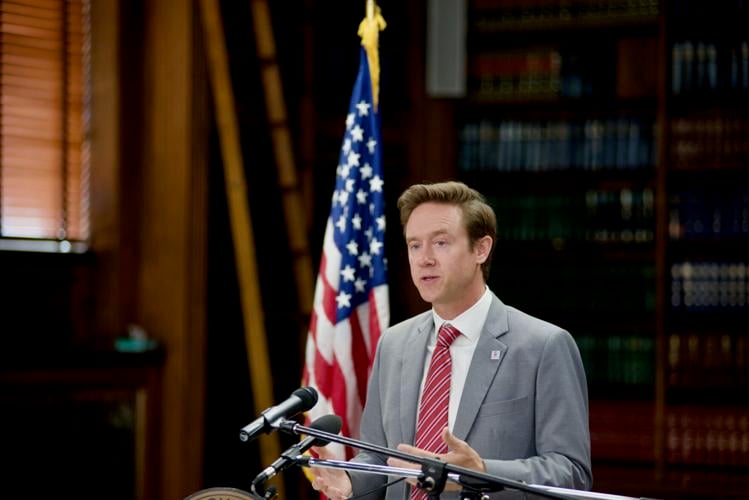Even as Denver cuts its budget and diverts funds in order to pay for its response to the immigration crisis that some say is self-inflicted, Mayor Mike Johnston's administration released a "playbook" that contains the "best practices and procedures for cities to welcome newcomers arriving from the U.S. southern border."
The 24-page document is essentially a 15-step "how-to" guide, but its usefulness may be questionable as other metro area communities have made clear that the Mile High City is on its own. Lakewood and Aurora, the two largest municipalities within the metropolitan area, have told Denver they will not accept immigrants from the city.
Other surrounding cities like Centennial and Arvada have said they don't have resources available to assist immigrants. An Adams County spokesperson told The Denver Gazette in March the government is "not officially accepting immigrants at this time."
But the guidebook attempts to work beyond the borders of Jefferson, Denver, Adams and El Paso counties. A news release from the mayor's office said it has been shared with "stakeholders across the country."
"We're proud this playbook will help newcomers resettle in cities with more opportunities, help cities across the country successfully welcome newcomers and reinvigorate workforces," Johnston said in the release. "Denver has led by building sustainable systems that help newcomers get back on their feet and turning a crisis into opportunity."
The move seems to have gained some traction as Kansas City, Missouri, has opened its doors to immigrants from Denver and New York City. Its Mayor, Quinton Lewis, took to X, formerly known as Twitter, to make the announcement — specifically highlighting collaboration with Johnston.
All are welcome in Kansas City. Proud to work with my fellow mayors like @MikeJohnstonCO and @NYCMayor as we work to ensure decompression of new arriving communities and collaboration among cities, labor, non-profits, and federal officials. https://t.co/bakvcp4yyK
— Mayor Q (@QuintonLucasKC) April 16, 2024
The press release claimed Denver has seen the most immigrants than any other city in the country per capita. Since December 2022, Denver has seen roughly 41,000 immigrants pass through the city. Of those, the city said about half have moved on to other cities — thus creating a use for the guidebook.
The city doesn't have an exact idea of how many people remain and are looking for work, as tracking outcomes for immigrants is more complex than for homeless people, city officials have said.
The city levies some blame for the crisis at the federal government, which it said, "failed to pass historic, bipartisan legislation," that could have provided money for the city. Instead, the administration had to find areas to make cuts and reallocations in order to fund a roughly $90 million immigrant resettling program.
"In Denver, we believe that our challenges are solvable, and we are the ones to solve them,” Johnston said in the release.









(0) comments
Welcome to the discussion.
Log In
Keep it Clean. Please avoid obscene, vulgar, lewd, racist or sexually-oriented language.
PLEASE TURN OFF YOUR CAPS LOCK.
Don't Threaten. Threats of harming another person will not be tolerated.
Be Truthful. Don't knowingly lie about anyone or anything.
Be Nice. No racism, sexism or any sort of -ism that is degrading to another person.
Be Proactive. Use the 'Report' link on each comment to let us know of abusive posts.
Share with Us. We'd love to hear eyewitness accounts, the history behind an article.